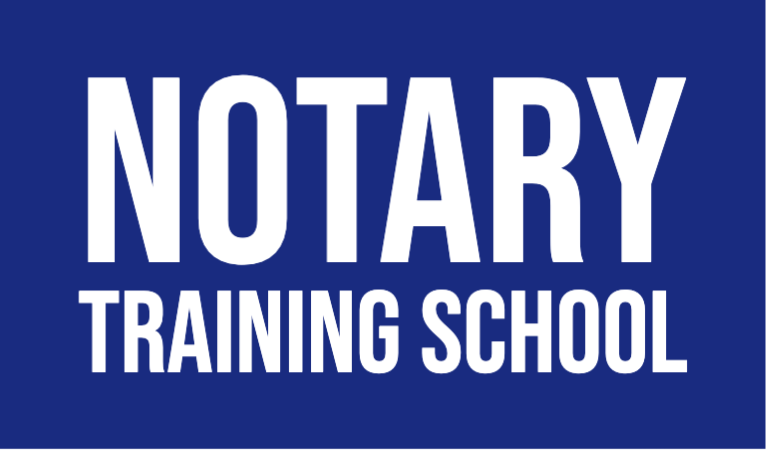What is a Notary Signing Agent?

Loan Signing Agent Description
A Notary Signing Agent (NSA) is a certified notary public who has been trained and specializes in the loan process and notarizing mortgage documents. They are often also referred to as “Loan Signing Agents.”
Notarizing Loan Documents

A Notary Signing Agent helps ensure that the loan documents are properly prepared and signed, which helps protect lenders and borrowers. This includes receiving loan document packages from lenders, printing loan documents, and conducting loan signings. They are a vital step in the mortgage process in protecting against mortgage fraud. Not all notaries are specially trained to notarize loan documents, but many notaries become signing agents so that they can do so.
Loan Signing Agent Responsibilities

As a Loan Signing Agent, you would be responsible for verifying the borrower’s identity and verifying that the document is signed following the guidelines set by the lender. Additionally, you must be familiar with the loan documents and all applicable laws and regulations.
Notary Signing Agents must know state-specific loan document requirements to complete these documents legally.
What is a notary public?

A notary public is legally empowered to witness signatures, certify documents and perform other related services. A notary public provides a valuable service to individuals in the community, such as verifying identities and witnessing the signing of important documents.
How do I become a notary public?
While some states require that you obtain particular training or certification before being appointed to serve as a notary public, most states only require applying for a notary public commission.
Notary Public Responsibilities
Once appointed, you will be responsible for following all applicable laws and regulations as a notary public.
If you are interested in becoming a notary public, you must research the specific requirements for your state before applying.
What is the difference between loan signing agents and notaries public?

The main difference between notary signing agents and notaries public is that notary signing agents are specifically trained and certified in completing loan-related documents, while notaries public are generally appointed to witness signatures, certify documents and perform other related services.
Notaries public may also need to be knowledgeable about state-specific laws and regulations related to their work, but they typically provide more general services than loan signing agents. Notaries public may administer oaths, perform civil marriage ceremonies, take acknowledgments of deeds, affix notarial seals to documents, and authenticate copies of certain documents.
Loan signing agents typically work with loan officers, title companies, and attorneys to ensure the accuracy of loan documents and facilitate the closing process. They assist borrowers in completing loan paperwork. Notaries public generally provide services to individuals or organizations without any affiliation to a particular industry.
Both provide essential services, but signing agents have additional certification to complete sensitive transactions that contain private financial information.
In summary, loan signing agents specialize in completing loan-related documents for lenders; notaries public offer more general services related to witnessing signatures, certifying documents, and other duties. Knowing the difference between these two roles can help you decide which profession is best suited for you.
How do Notary Signing Agents make money?

Loan Signing Agents are independent contractors that decide the fees they charge, but those fees are also negotiated with the company offering the signing. For each transaction, the notary signing agent will charge a fee determined by the document package’s complexity and other factors.
The fees charged depend on the source of the signing. Signings booked through signing services typically pay less than those assigned directly from a title company, bank or lender. But banks or lenders usually only want to work with the most experienced Notary Signing Agents so most start with signing services or signing agent directories to find their first signings and gain experience.
How do I become a Notary Signing Agent?
To become a Loan Signing Agent, you must first obtain your state’s notary commission and then complete specialized training. Each state has different requirements for becoming a notary public, so research the requirements in your area before applying.
Once appointed as a notary public, you will need to obtain specialized training covering all documents associated with loan signings. These documents include but are not limited to: promissory notes, loan applications, deeds of trust, and disclosure statements.

In conclusion, notaries public, and loan signing agents are entirely different professions. Notaries public offer more general services, while loan signing agents specialize in completing loan-related documents for lenders. To become a successful Loan Signing Agent, you must obtain your state’s notary commission and complete specialized training. It is also vital to stay up-to-date with industry trends, network with other professionals within the mortgage industry, and consider becoming certified as a Notary Signing Agent. With the right qualifications, training, and dedication, you can turn your passion into an excellent source of income!






I am interested in becoming a notary agent
Sounds great! Our program can definitely get you started on the right path.
Question is this for the state of FL
Yes. The content of our program applies to all 50 states.
Ready to begin
Sounds great. Our program is the quickest way to get started successfully.
I am in the process how many actual questions is on the state test here in arizona?
AZ doesn’t have a state exam for a notary commission.